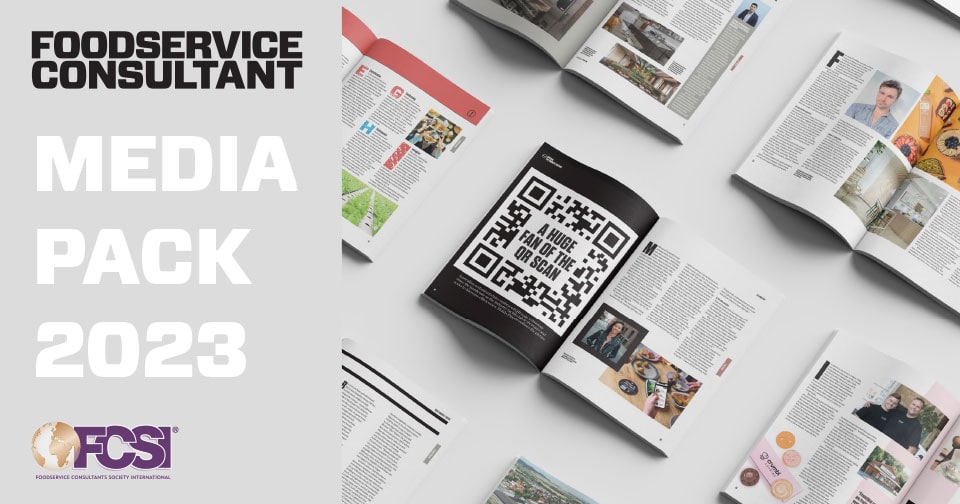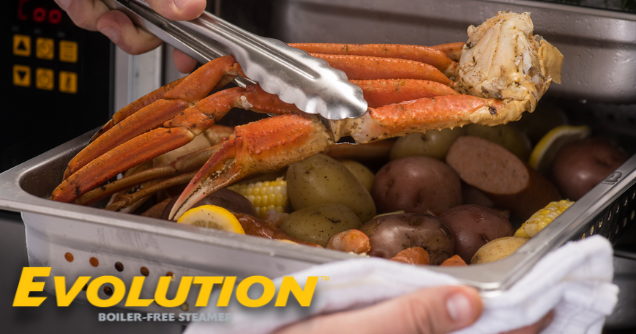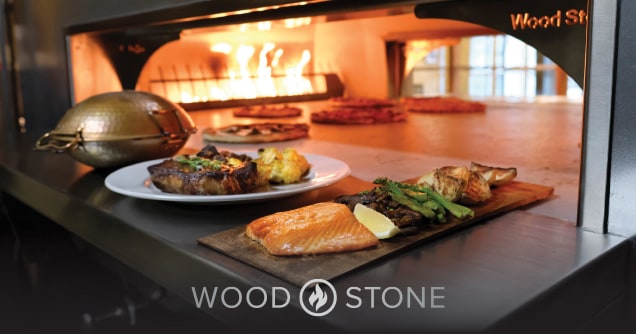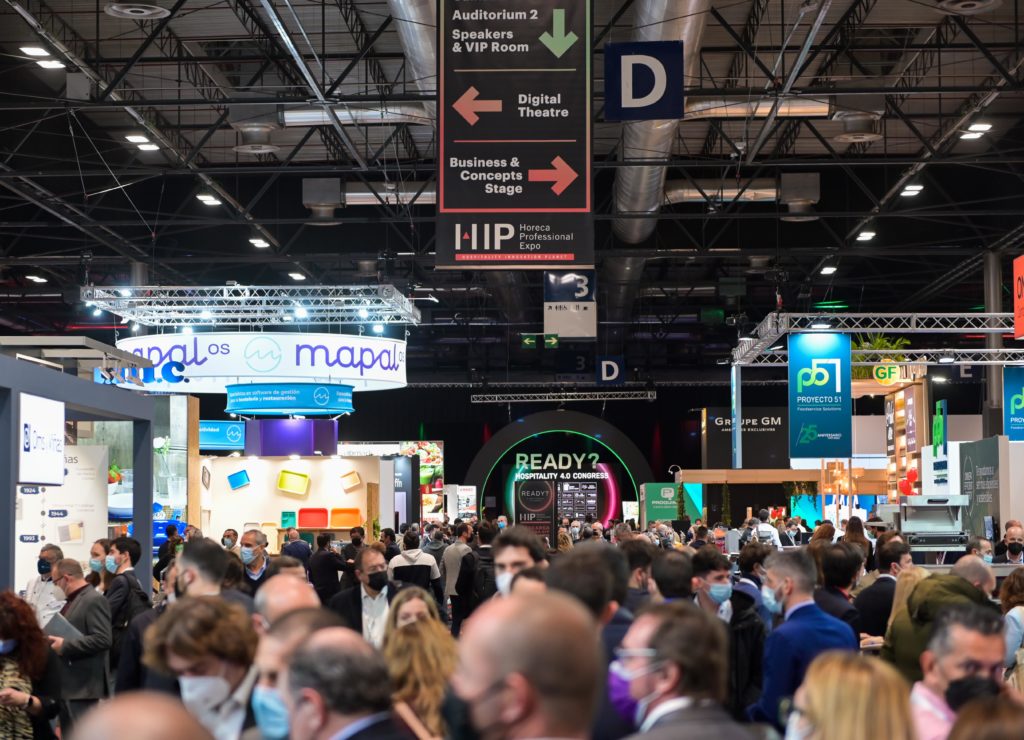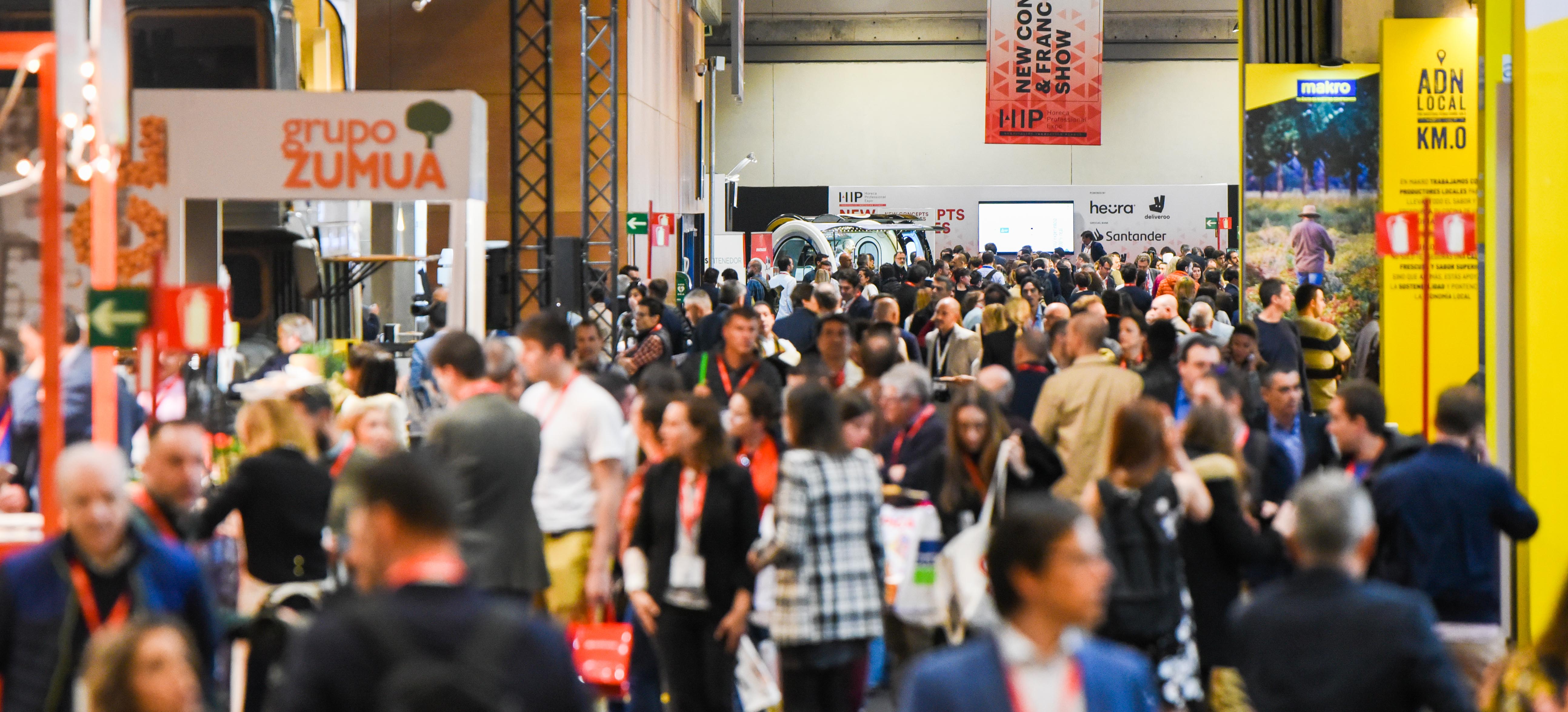
As hospitality and foodservice shows go HIP differs from other events as combines a trade show area with a comprehensive conference programme, featuring 468 international speakers, demonstrations and panel sessions on everything from the spike in off-premise dining and delivery to the legal rights of robots.
“As far as I am concerned, trade shows as they were have no sense today,” says event director Manel Bueno. “We think we need to organise professional and experiential events where the owners and the entrepreneurs have a place to learn and to be inspired about what is going on in the sector.”
HIP continued on its trajectory of fast growth for the 2020 edition, with over 30,000 visitors up from 25,000 last year and 500 manufatcurers and exhibitors taking up the trade show space, representing a 40% growth.
Commercial kitchen equipment manufacturers including Rational, Fagor, Irinox and Unox shared the exhibition space with foodservice wholesalers such as Makro and furnishing and interior design companies.
“The sector is changing very fast, so the retail and horeca sectors are intertwining. Eating at home and outside home are also merging, because you are ordering food from a restaurant but you eat at home. We are the place where we try to explain all of this,” says Bueno.
Entrepreneurial chefs
Spain’s esteemed catering school the Basque Culinary Center took charge of a chunk of the conference activity with its Culinary Action programme, including a session with some of the country’s top chefs – Diego Guerrero of DSTAgE, Mario Sandoval chef owner of Coque and Paco Morales from Noor in Córdoba, Andalucía.
The three all hold two Michelin stars and appeared together on stage to discuss a trend in the market, which is seeing fine-dining chefs open more casual restaurants. All three have overseen expansion into more accessible restaurants. They discussed their reasons for this – an entrepreneurial spirit, a wish to attract a more broad-based clientele and a recognition that risk is required in gastronomy – as well as the practical considerations in such a move. “The three of us are all entrepreneurs,” said Guerrero. “The difference between an entrepreneur and someone who isn’t is the willingness to take risks.”
Sandoval added that risk is absolutely vital in this business. “If you don’t expose yourself to failure, you get too comfortable,” he said.
The chefs recognised that though they are in a high-end market segment, they need to stay on top of trends. “We have to pay attention to the trends of ghost kitchens, delivery and similar developments,” said Morales.
Meeting new demands
Among the four dedicated auditoriums hosting the HIP conference programme, the Digital Theatre had a focus on new technological innovation within foodservice and hospitality. One of the presenters, Barney Wragg, the founder and CEO of technology company Karakuri, delivered a presentation about his company’s mission to meet a growing demand for ultra-personalisation of meals.
“Our solution can deliver 340 meals per hour using up to 48 ingredients – chilled, hot, ambient, liquid and solid,” he said, outlining Karakuri’s proposition.
The thematic strands covered all areas of the horeca sector, including hotel trends, mass catering, chain restaurants, the care sector, robotics, talent marketplace and legal focus to name a few.
Networking in the city
Completing the HIP picture alongside the conference and trade show elements sits the networking offer, which Bueno says is vital. “We have networking events around the event, inside and outside the venue. These might include a trip to the airport to visit all the gastronomy concepts there; or a tour of a new neighbourhood of Madrid that has been converted into a gastronomic destination,” he says. “It is an opportunity to explain to business owners what Madrid is doing as a city to make areas attractive gastronomically.
Madrid is the perfect city to host events such as HIP today, having undergone a sweet moment in recent years, which has seen it become one of the country’s most exciting dining destinations. “This is great for the city, it is great for tourism and there are a lot of investors coming here,” says Bueno.
The show, run across three days, offers a packed schedule for visitors. The intention, says Bueno, is for people come with an agenda. “We have the app and people choose 5 or 10 sessions to attend in the congress, then they go and see some exhbitors in the trade or they may go to a networking event or one of the social events,” he explains.
Planning is already underway for HIP 2021; and it is set to grow again. “Next year we will add another hall and visitor numbers will increase again. HIP is a platform with many players and a huge community of people,” concludes Bueno. “Each year we try to bring the most disruptive solutions and show what is next.”
Tina Nielsen

